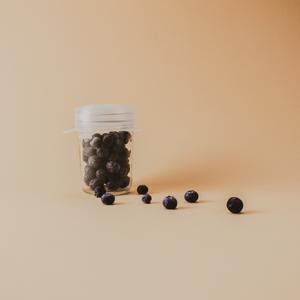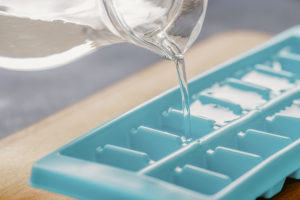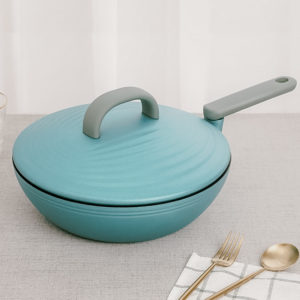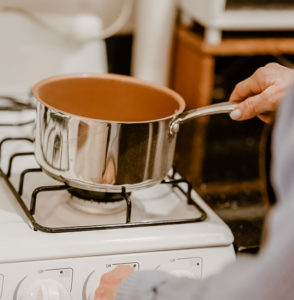
Source: shop.zerowaste.com
Silicone Vs. Plastic – What’s Best?
The problem of our reliance on conventional plastics is well documented; from the lengthy decomposition process to the scourge of microplastics in the world’s oceans. Silicone has lately been hyped as one of the sustainable alternatives to plastic products, however, to say that silicone is objectively better than plastic may be to simplify the issue. Here we discuss just how silicone differs from plastic and what its impact on the environment looks like.
Where Is Silicone Used?
Characterized by its rubbery flexibility and resistance to high temperatures, we perhaps most commonly think of silicone in its application to kitchenware like spatulas, muffin molds, and oven gloves, but it comes in a variety of states beyond these recognizable ones. It can be produced as a liquid, paste, grease, oil, or rubber and has myriad uses across industries such as cosmetics, electronics, aviation, and construction.
What is Silicone Made From?
The question of whether silicone is actually a plastic itself is up for debate, and the answer depends on who you ask. Like plastic, silicone is a polymer, made from a combination of naturally occurring chemicals and synthetic inputs. It is produced by heating up silica (or silicon dioxide) with a carbon fuel source, which yields the natural element silicon (without the ‘e’ of silicone).
Silicon can in fact be found naturally within the earth but is difficult to extract and so is usually produced from the more easily acquired silica (beach sand is almost pure silica, as is quartz). The silicon obtained from this process has one more step to undergo to make silicone; it is reacted with hydrocarbons derived from fossil fuels, among other chemicals, to create the silicone we use in everyday life.
How Does Silicone Differ from Plastic?
The most notable functional difference from plastic is the inert quality of silicone, which makes for a significantly more durable product over the long term. It also boasts a greater flexibility than most plastics and will not break down when exposed to high heat or freezing in the way that plastic would (think of those old plastic ice trays that always seem to crack sooner or later).
Does This Mean Silicone Is Better Than Plastic?
Source: shop.zerowaste.com
The short answer is yes; the robustness and longevity of silicone suggest that it is a better choice, both for the environment and practical consumer use when compared to similar plastic products. The way in which we consume plastics in our society is deeply unsustainable and harmful; half of plastics are single-use whereas silicone products are always multi-use and have longer life spans.
Replacing a layer of saran wrap or aluminum with a flexible silicon lid stretched over a bowl of leftovers can entirely cut out the need for certain single-use products. Additionally, silicone does not break down into the dangerous microplastics that pollute our oceans and pose such profound dangers to aquatic life. What’s more, the harmful toxins that plastics release when burnt are not found in silicone—when incinerated, silicone ashes are converted back into silica and have no negative environmental impact on the land.
Is Silicone Safe?
Both the US and Canada approved silicone use in kitchenware, and there is also a ‘food grade’ rating for silicone products which ensures the item is 100% silicone and does not include chemical fillers. Usually, these high-purity silicone products are labelled as such, but it can also be checked by pinching the silicone—a change in color to white signals the use of chemical fillers. It must be said that under serious and prolonged stress, silicone can reportedly exude siloxanes, the negative impact of which still requires more research.
What Are the Drawbacks of Silicone Products?
Although silicone is often a better, more durable and reusable material than plastic for everyday use, does this mean it is an objectively sustainable material that we should all rush out to buy tomorrow? Well, no. Silicone and plastic both draw on non-renewable natural resources for their production. As discussed above, although silicon occurs naturally, transforming it into silicone requires oil and natural gas to heat it to extreme temperatures, and so it can hardly lay claim to being a truly sustainable product.
Aside from its production, the use of silicone, particularly in cookware, has its drawbacks. Silicone is not 100% inert and there are many products with a lower level of chemical reactivity available for cooking at high temperatures, such as ceramics and glass. There is certainly no call to fill your kitchen cupboards with silicone baking trays to replace your existing cookware.
Perhaps the biggest concern with silicone is that it is not biodegradable, and it will not break down naturally within your lifetime. Additionally, recycling silicone is very difficult—a special recycling process is needed, one which is not offered at municipal centers or via doorstep pickup. This means that a large amount of silicone goes to landfill every year. That being said, if you can seek it out, silicone recycling is possible, and therefore safe, environmentally friendly disposal after decades of functional use is attainable.
Silicone or Plastic?
We’ve seen that silicone is better for the environment over its lifetime as compared to a plastic product fulfilling a similar function. And relative to single use plastics, silicone offers a much more sustainable solution for many household products.
However, this does not mean there is not often a better alternative to silicone out there. For example, glass or stainless steel for cooking and storage offer both lower chemical leaching and greater recycling options.
Careful consideration should be taken with each purchase, and plastic items that can still be reused over a long period of time should not be cast aside in order to stock up on silicone alternatives. Reducing waste is as much about what we do with what we already have, as about selecting the best new products.
To learn more about reducing waste subscribe to the blog today, or to discover sustainable products to cut down on plastic use, browse the store.







